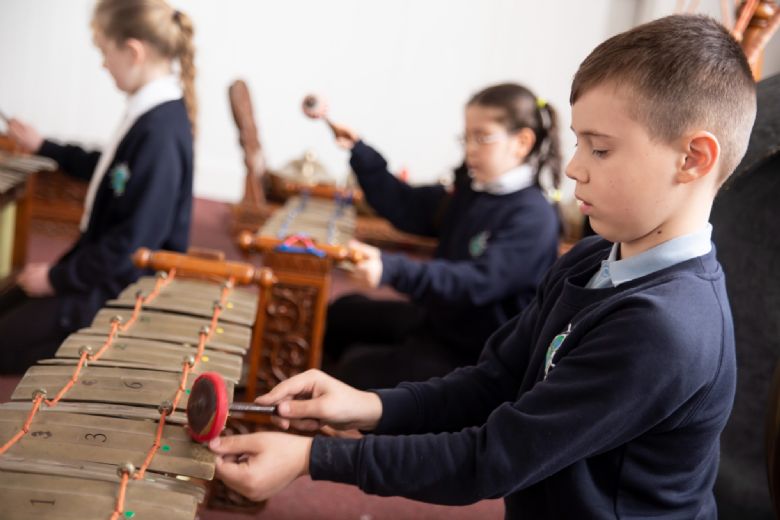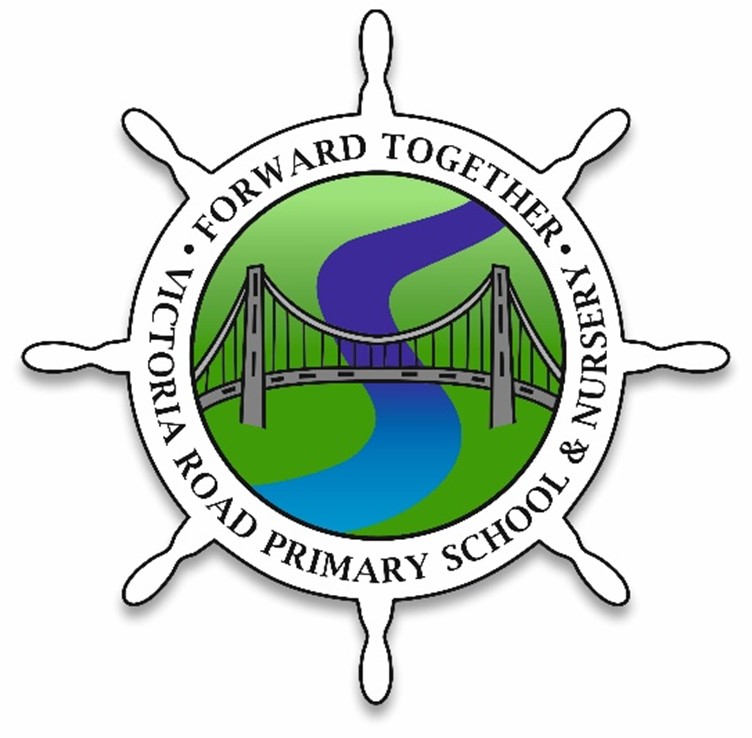Music
Principles of the music curriculum
“Music is one of the most powerful things the world has to offer. No matter what race or religion or nationality or sexual orientation or gender that you are, it has the power to unite us.”
Lady Gaga
Music contributes to a broad and balanced arts provision for all pupils and is taught as part of the National Curriculum. Developing children's passion for music and the performing arts is a well-known part of the Victoria Road curriculum. Music is a unique way of communicating that can inspire and motivate children. It is a vehicle for personal expression, and it can play an important part in the personal development of people. Music can connect ‘us’ and ‘places’ in our ever-changing world. Music is the sound track to our lives; and as Plato wrote, ‘Music gives a soul to the universe, wings to the mind, and life to everything’.
Besides being a creative and enjoyable subject, music is also a highly academic and demanding subject. It also plays an important part in helping children to feel part of a community. We at Victoria Road Primary, we provide opportunities for all children to compose, play, perform, and enjoy music across a range of history, cultures, and genres. We also develop the skills to appreciate differing musical forms and learn to make judgements about the quality of music. Overarching this, research evidence shows that a quality music education can improve self-confidence, behaviour and social skills, as well as improve academic attainment in areas such as numeracy, literacy and language (DfE).

Intent: Why do we teach what we teach?
At Victoria Road, we provide many opportunities for all children to create, play, perform, appreciate, and enjoy music. We aim to not just steadily develop and increase the children’s musicianship, but we also aim to develop the 'child as a whole' through the engagement of musical activities - developing and nurturing pupils’ sense of ‘self’ (through allowing them opportunity to explore their own abilities).
We want to ensure all pupils are able to access musical activities; explore and understand how sounds are made; and how they can be organised into musical structures. Through our learning at Victoria Road, the children also develop the interrelated skills of composition, performance and musical appreciation in every term in every year group.
It is our aim that the needs of all children are met so they can reach their full potential in music and enhance their understanding of other related subjects. Furthermore, we aim for every child to leave Victoria Road Primary School with a range of musical skills, knowledge, understanding, and a love of music which they can carry with them through Key Stage 3, and perhaps Key Stage 4, and for the rest of their lives.
Music Capital
In music, we need to think carefully about the ‘best’ genres of music we promote in our drive to increase cultural capital levels. Most children are already using music’s cultural capital as a form of social currency through making friends and finding their identity through mutual appreciation of music. However, research shows that ‘open-earedness’ dips around the age of 10-11 where children become less unwilling to listen to anything that doesn’t fit their own perception of what ‘good’ music is. It is our best chance of increasing pupils’ cultural capital throughout primary school, so we need to listen to good examples of music with strong narrative or image association.
From around the age of seven, children become more able to notice pure musical features, such as structure, dynamics and tempo. In early KS2 we have an opportunity to select and discuss musical examples which obviously feature of certain structural or expressive devices. As pupils enter into that danger zone of ‘closed-earedness’, we link some of our musical examples to what they’re listening to all whilst experiencing a wide range of different musical styles and genres.
These musical experiences add to their social currency for later life. Our aim is to find them a new musical passion that they will hold onto through that difficult ‘closed-eared’ phase. What’s far more important is our pupils’ ability to build self-identity and bond with others through their own musical preferences. The more music we introduce our children to, the more opportunities they will have to form these bonds with their peers, increase their social circles, and enjoy music together.
Implementation: What do we teach and when?
At Victoria Road Primary School, we make music an enjoyable, interactive learning experience. We encourage children to participate in a variety of musical opportunities through which we aim to, not only build-up the confidence and resilience of all children, but also develop their memory, concentration, co-ordination, creativity, and auditory and oracy skills. This is achieved through:
- focusing on the skills and knowledge of singing, playing, composing, and appraising.
- exploring different musical instruments and building upon the children’s fluency of playing them, this also includes how to use their own bodies and voices.
- learning and appreciating music across a range of historical periods, genres, styles and traditions, including the works of the great composers and musicians.
- understanding the nine interrelated dimensions of music and how these are used when singing, playing instruments, improvising, composing, and developing original pieces and performances.
However, at the heart of good music teaching and at the core of our school, singing lies. Our teaching focuses on developing the children’s ability to sing in tune and in harmony with other people. Through singing songs, children learn about the structure and organisation of music and their own voice and breath.
To further this, Victoria Road Primary School’s weekly singing assemblies cover a plethora of musical genres across the year, exposing the children to different styles and nuisances of music, and the opportunity to interact with and perform them. Our schoolhouses a complete bespoke Gamelan set. In Year 3 and 4, our children benefit from personalised lessons from trained musician, teaching them not only how to use the musical instruments, but the heritage and culture that surrounds it. All children across the school can visit the Gamelan set for a mindfulness session, which is led by their class teacher. Year 3 and 4 also have Djembe drum lessons taught by a specialist teacher which enable the children to deepen their musical knowledge further and develop musical instrument fluency.
Impact: How children show that they know and remember more
Our children enjoy and value music and are depending on an understanding of ‘why’ they are doing things, and not just ‘how’ to do things. Working independently and collaboratively with others, children will develop their understanding, appreciation, and musicianship from EYFS to Year 6. Not only will they be able to articulate their opinions, judgements, and feelings about music – of their own pieces and of others - using key musical vocabulary and knowledge, but the children will also be able to compose pieces of music with more skill and creativity; perform more expressively and confidently; and play instruments more fluently and coherently. Underpinning all of this, children will demonstrate the values of music in the context of their personal wellbeing, and the creative and cultural industries, and their many career opportunities. Progress will be shown through outcomes and through the important record of the processes leading to them.


